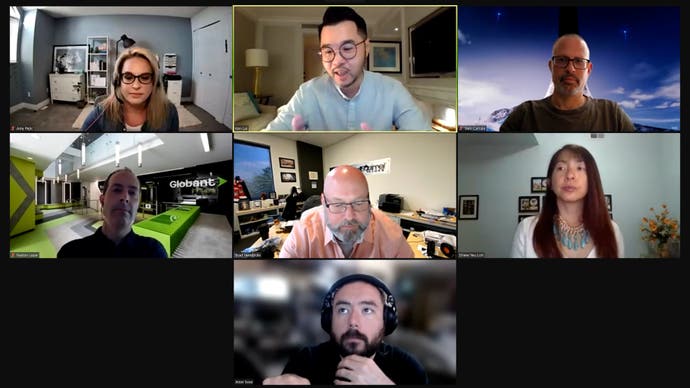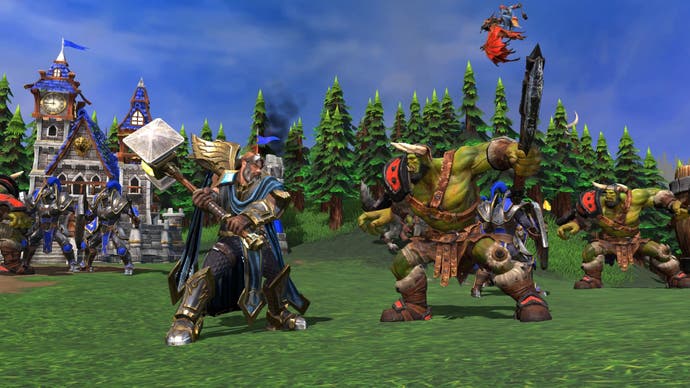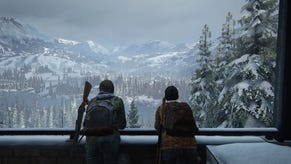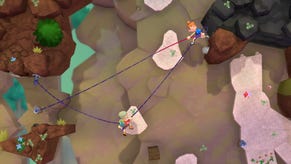The games industry just talked about outsourcing crunch and totally missed the point
Every Voice Matters?
A couple of months ago, we published a video for People Make Games that investigated working conditions at two outsourcing studios in Southeast Asia. These companies, Lemon Sky Studios from Malaysia and Brandoville Studios from Indonesia, are both routinely hired by AAA publishers to create huge amounts of art assets for some of the biggest video games in the business, from Gears of War 5 to The Last of Us 2.
And according to that investigation, these studios are also relying heavily on excessive overtime, or crunch, in order to get this work done. Based on the accounts of 19 current and former employees, the video details working environments in which artists have little choice but to volunteer for unpaid overtime in order to meet unrealistic deadlines.
"That's the thing, the company never asked for it," said one anonymous former Lemon Sky employee. "Therefore, they do not have to pay for our OT (overtime). But we weren't given enough time to complete our task."
Although we focused on just a couple of studios in our reporting, it became clear that this was a much more widespread issue across the outsourcing industry. As one senior source explained, if a company like Lemon Sky or Brandoville was to demand a more substantial budget, or a longer deadline, in order to prioritise its employees' wellbeing, it then ran the risk of being undercut by another outsourcing studio that wouldn't.
That's not meant to downplay the role of mismanagement at these two companies, but it's important to realise that these problems are not only the responsibility of the outsourcing studios themselves, but also of their AAA clients.
Which is why I was delighted to see the External Development Summit host a panel on Tuesday in response to our reporting, titled "Let's Talk About Crunch".
With voices from both sides of this relationship, panelists included management from Microsoft, Gearbox and The Coalition, as well as outsourcing teams like California-based Blind Squirrel Games and even Brandoville Studios, one of the two companies we'd examined in our video.
Things didn't get off to a great start.
After being asked if he believed game developers were really "outsourcing crunch", Brandoville CEO Ken Lai told the panel he didn't agree and that, in fact, these relationships had led to "more opportunities and careers" for game developers in countries like Indonesia.
This is not an answer to the question he was being asked.
Earlier this year, we spoke to eight current and former Brandoville employees who described a workplace culture in which unpaid overtime during their evenings and weekends was considered the norm.

"You have to do it or leave," said one former artist. "I worked OT almost everyday, between 10 and 30 hours per week."
"You are not treated as human," said another, "you're just treated as a disposable artist. I'm not going back."
Later on in the panel, the Brandoville boss was asked how his employees were compensated for any overtime they did work.
"We do have benefits," said Lai. "We make sure there's Saturdays and days off. We have holidays. During Christmas, we shut down the server and make sure we have the time off and refresh the people. We make sure, as I said, that we have extra resources to cover unexpected overtime."
Again, the question itself remained largely unanswered. Based on our own reporting, we understand that Brandoville employees are rarely paid for the extra hours they work, as it's considered a voluntary action on behalf of the worker.
On top of this, we've seen messages sent by Brandoville management to two former employees who were being scolded for even agreeing to take an extra day off in exchange for working a public holiday. They were told to turn this offer down and then send a message to their other colleagues explaining that it was their pleasure to work hard.
Others on the panel seemed more willing to acknowledge that excessive overtime was a problem that wasn't being dealt with.
"If we are crunching indefinitely and we're making that a default, and you cannot go home until your boss goes home, or until you've worked 10 hours a day, six days a week, that is not acceptable," said Pocket Gems Art Manager, Shiew Yeu Loh. "However, unfortunately, in many areas in this industry, that is seen as a default."

It was Microsoft's Sam Carlisle who offered perhaps the most sincere appraisal of where things stand.
"It's not something that gets brought to the fore, it just kind of happens. There's a level of acceptance. And I think a really good example of that is the fact that this is now coming up to the ninth XDS (External Development Summit) and this is the first time this topic has been tackled.
"And I think as an industry, we've been pretty at fault in terms of oversight here. We've got used to it and we've got used to saying: it's the games industry, you crunch."
But in terms of solutions, the panel struggled to land on anything tangible. Some spoke of the importance of putting your foot down, or preparing ahead of time, but I don't know how useful platitudes like that are going to be for a newly-graduated and overworked concept artist from Kuala Lumpur, or a 3D Modeller in Jakarta who's not leaving the office until 3am in the morning.
And that's the thing! This was the glaring problem with Tuesday's panel: those people weren't being represented. Their voices remained entirely unheard.
Of the seven people involved in this discussion, all seven held either management or executive positions at their respective companies. Five of them lived in the United States (almost half of the panelists lived in California specifically), one was based out of the UK and only Ken Lai lives and works in Southeast Asia.
I sent a recording of this panel to one of Brandoville's former employees and asked for their perspective on the conversation, under the condition of anonymity.
"Ken's views on overtime effectively pin the blame on the artists' lack of abilities or the client's underestimation of the workload," said the employee. "Both things which should be monitored by the project management, client/marketing and higher ups. Instead, he uses this talk as a chance to try and further promote Brandoville and dispel what the video has exposed of the company's culture and working conditions."
Although the XDS should be commended for wanting to discuss crunch as it relates to outsourcing, I do think this panel has highlighted something important. You'll never be able to understand, let alone solve, the systemic exploitation of a workforce without inviting a representative of those workers to have a seat at the table.
We have requested comment from Brandoville's Ken Lai for this article, but haven't yet received a response.



















.jpg?width=291&height=164&fit=crop&quality=80&format=jpg&auto=webp)